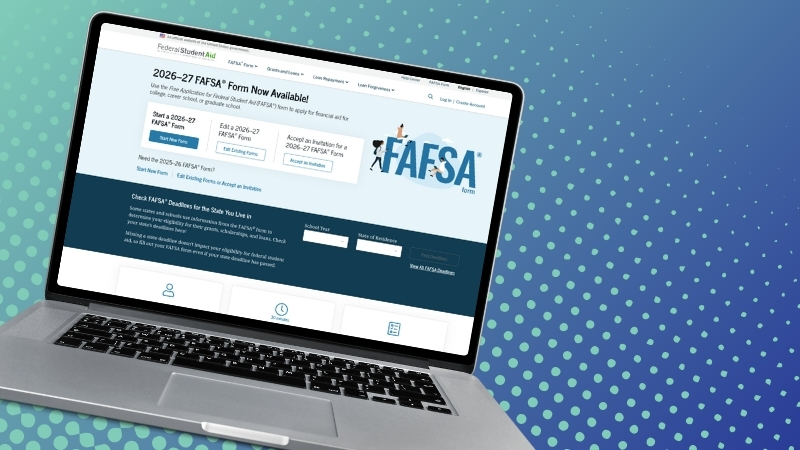
Note from MCAN: The 2026-27 FAFSA launched ahead of schedule the evening of Sept. 24, after this press release was distributed.
LANSING, Mich. — Michigan College Access Network is kicking off Michigan College Month in October with over 285 schools and counting participating in college access events statewide. Michigan College Month is the first phase of College Bound Michigan, a suite of three initiatives designed to build and support college-going cultures in high schools and their surrounding communities. Last year, College Bound Michigan reached almost 32,000 seniors at nearly 300 partner schools and community-based organizations across the state, and MCAN expects to exceed both numbers this year.
As part of Michigan College Month, a number of Michigan colleges and universities are waiving their application fees throughout October. Michigan College Month flows into College Cash Campaign, which focuses on financial aid and paying for college, and then College Decision Day in May, which recognizes high school seniors for their postsecondary plans and encourages younger students to prepare for postsecondary education. This trio of initiatives is designed to improve college readiness and participation among graduating high school students, moving us closer to the state's Sixty by 30 attainment goal — 60% of Michigan residents earning a postsecondary certificate or degree by the year 2030.
“College Bound Michigan strengthens Southeastern’s SE4E model — Exposure, Exploration, Engagement, and Enrollment — by building a strong college-going culture in our school,” said Rakiba Mitchell, senior school counselor at Southeastern High School. “Through statewide initiatives like Michigan College Month, FAFSA completion campaigns, and College Decision Day, our students gain structured opportunities to explore their options, engage with applications and financial aid, and celebrate their commitments. Together, CBMI and SE4E ensure every Jungaleer has the knowledge, resources, and encouragement to finish what they begin and successfully transition to their next chapter.”
“College Bound Michigan is a statewide movement,” said Jeneen Hatoum, MCAN director of high school innovation. “Research points to the importance of providing guided support for college-going steps. We know that for a lot of students, especially those from communities that are underrepresented on college campuses, this support is vital to accessing and succeeding in higher education. College Bound Michigan provides the infrastructure to allocate time during the school day, giving students an opportunity to complete the necessary college-going steps and helping to ensure every graduate has a viable postsecondary option after they leave high school.”
The payoff of postsecondary education is clear. College graduates typically earn more over their lifetimes, experience greater job stability, and are more engaged in their communities. MCAN’s Impact Map indicates the college attainment rate is approximately 47.5% for adults ages 25 to 64, and continuing to increase this number is key to the state’s long-term workforce and economic health.
For the first time in three years, the Free Application for Federal Student Aid (FAFSA) is on track for an Oct. 1 launch, giving seniors and schools a predictable window to complete forms and plan next steps. The National College Attainment Network also maintains up-to-date tools and explainers families can use to prepare for the 2026-27 FAFSA.
“The FAFSA’s return to an October launch matters deeply for every senior, especially students from low-income backgrounds, students who would be first in their family to go to college and students of color,” said Ryan Fewins-Bliss, MCAN executive director. “An on-time opening means students get a clearer runway to complete forms, compare offers and choose a path that fits their career goals. When we remove barriers and expand access to degrees and certificates, we change individual futures and strengthen Michigan’s economy.”
FAFSA completion is on the rise, according to MCAN’s FAFSA tracker, highlighting a 5% increase for the class of 2025 compared to last year. This means more students and families can tap into Michigan’s expanded state-funded financial aid. Through programs like the Community College Guarantee and the Michigan Achievement Scholarship, more students than ever can access affordable, debt-free pathways to associate and bachelor’s degrees.
“For so many students, this support is a tipping point,” said Fewins-Bliss. “It’s what makes college possible.”
To learn more about Michigan College Month or College Bound Michigan, visit micollegeaccess.org/initiatives/college-bound-michigan.
Hundreds of Michigan schools, organizations work to boost college applications, FAFSA completions among seniors